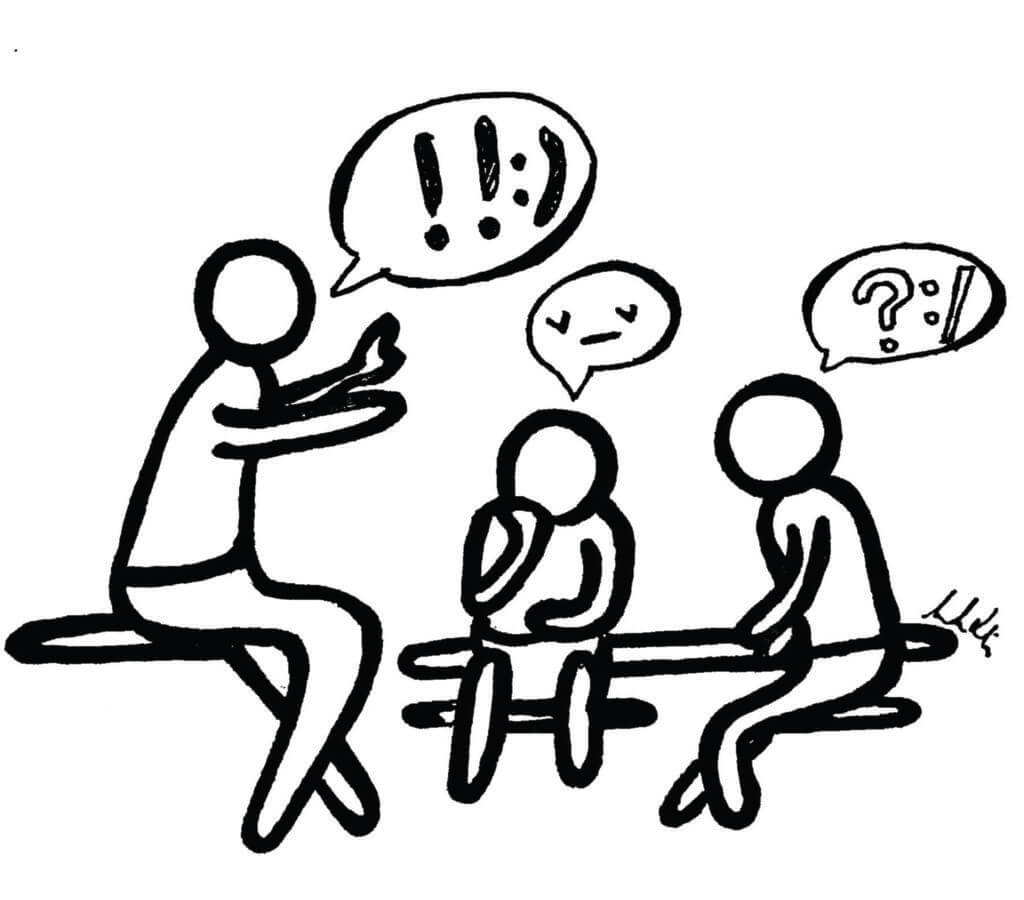A new program organized by the Psychology Society hopes to foster connection between first, second, and upper-year students
For psychology students interested in meeting other psychology students, learning more about the program, and sharing with and learning from others, Mount Allison’s Psychology Society has introduced a new peer mentorship program: Making Connections. The program will pair first and second-year psychology students with upper-year mentors based on similar interests.
“One of the original motivations for creating Making Connections was noticing how much we and our peers were benefiting from making friends within the Psychology department, especially upper-year students who had more experience than we did,” said Sarah Park, a fifth year Honours psychology student and Co-President of the Psychology Society. “The goal of Making Connections is to foster a sense of community amongst psychology students,” said Julia Kaufmann, a third year psychology student and the VP Academic Affairs of the Psychology Society. “We hope students will have the opportunity to form connections and relationships that will help facilitate growth and knowledge sharing.”
The program is one-on-one and flexible, allowing students to participate in a way that is best for them. “Everyone in the program will get suggestions for how to engage with their partner, but we also want each pair to connect in whatever way is best for them,” said Kaufmann. “For some, that may mean weekly walks, for others it may look like unscheduled text conversations.” The Making Connections program is meant to help guide first- and second-year students in the psychology program, to foster meaningful connections within the department, and to help form friendships. Kaufmann added that the one-on-one nature of the program makes following COVID-19 guidelines much easier. “We will be outlining our expectations and suggestions regarding COVID safety when giving out the pairings,” she said. “We have also included a question in our survey that asks participants whether or not they are comfortable with in-person meetings, so that we can make appropriate pairings that help people feel safe and comfortable.”
Dr. Jennifer Tomes, head of the Department of Psychology, was “thrilled to hear they were starting [Making Connections] up now.” She believes mentees can gain a lot of knowledge and information from upper-year mentors. Students might discuss clubs, volunteering opportunities, and potential career paths, as well as a number of other topics. “Things like why research opportunities are so valuable and how to get them, how to approach professors if they need some help or support, maybe even study or time management tips, how to balance doing well in school with the other parts of your life,” she said. Tomes believes that mentors can also gain from peer mentorship. “This is a great opportunity for mentors to ‘take stock’ and realize how much they have learned and how much knowledge they can pass on to others,” she said. “This increased self-knowledge can help them when they are applying for jobs or to graduate programs.” Tomes also said that peer mentorship can have added benefits for non-traditional students, such as first generation and mature students, who may have more difficulty navigating the university experience and accessing resources.
Park also believes that mentors and mentees both have a lot to gain from this program. “Having had informal mentors in my lower years and then being able to serve as an informal mentor more recently has provided me both perspectives,” she said. “Both natures of the mentor-mentee relationship have undoubtedly made a positive impact on my experiences as a psychology student.” She hopes that Making Connections will help first-, second-, and upper-year students learn from each other, find support, and make some new friends. “Right now, I think a lot of people are craving connection,” she said. “Knowing that it’s quite an isolating time for many people, we are hoping this program will help build individual connections along with a wider community of support.”
The Mount Allison Psychology Society offers a number of academic and social services and programs for psychology students at Mount Allison. Students can stay up to date on their activities on their Instagram (@mtapsychsociety) and Facebook pages.






